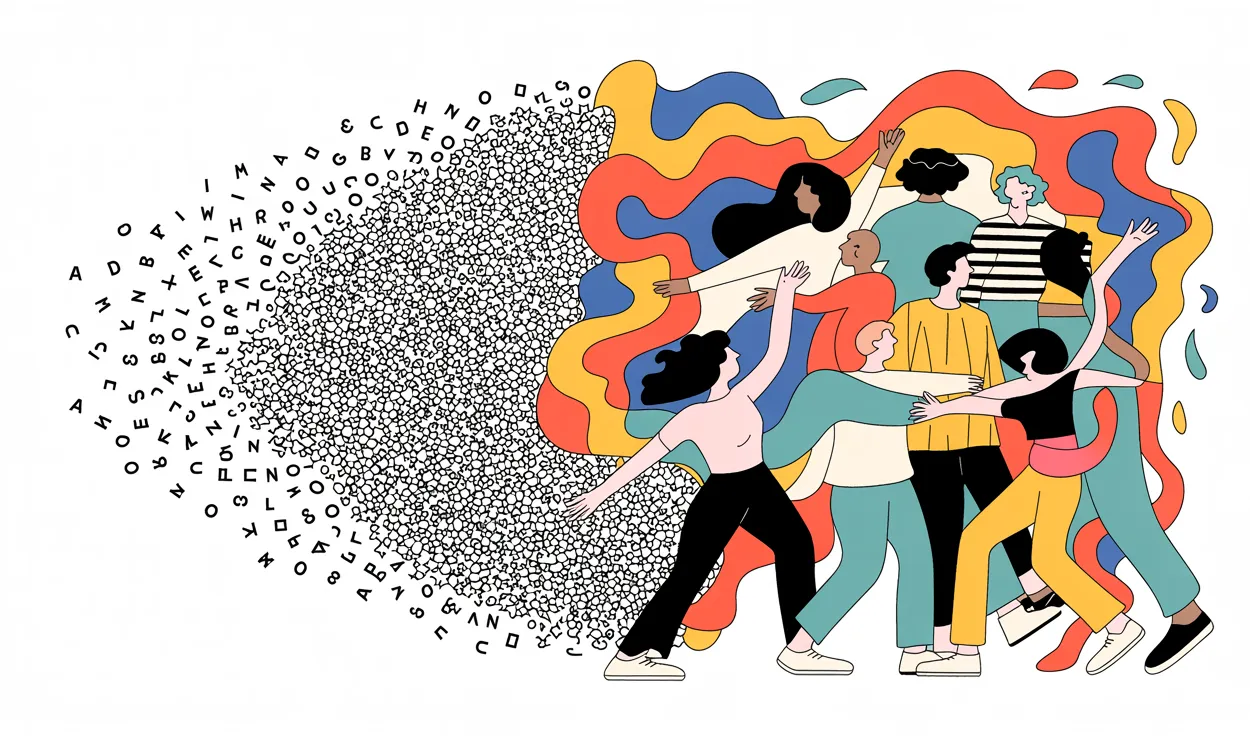The End of Writing? AI and the Future of Human Expression
- Author
- Bob Hutchins
- Published
- Thu 26 Jun 2025
- Episode Link
- https://sites.libsyn.com/135725/the-end-of-writing-ai-and-the-future-of-human-expression
In this thought-provoking episode, Bob Hutchins explores a radical possibility: that we may be witnessing the beginning of the end of humanity's 500-year relationship with the written word. Drawing from media theorists Walter Ong and Harold Innis, Bob examines how generative AI might fundamentally transform not just how we communicate, but how we think and connect as human beings.
Since Gutenberg's printing press, we've been compressing the entirety of human experience into alphabetic symbols—a constraint that has both liberated and limited us. While we've become virtuosos of written expression, creating symphonies of meaning from simple letters and punctuation, we've also lost touch with the immediacy and embodied richness of oral culture.
Bob argues that AI could serve as more than just a writing assistant—it might become the bridge technology that frees us from the cognitive overhead of translating experience into symbols, allowing us to rediscover richer, more authentic forms of human communication.
Key Topics ExploredThe Gutenberg Legacy
- How the printing press fundamentally altered human consciousness
- The trade-offs between abstract thinking and embodied presence
- Walter Ong's insights on orality versus literacy
Media Ecology and Communication Bias
- Harold Innis's theory of communication bias
- How different media favor durability versus immediacy
- The space-biased nature of written civilization
The Translation Problem
- The cognitive burden of converting lived experience into symbols
- Why meaningful moments often "die in translation"
- The gap between what we experience and what we can express
AI as Liberation Technology
- How AI might reduce the overhead of symbolic communication
- The possibility of universal translation between experience and expression
- Moving beyond AI as writing assistant to AI as cognitive scaffolding
Post-Literate Communication
- Immersive storytelling and embodied performance
- Collaborative creation and real-time narrative improvisation
- Visual, spatial, and archetypal forms of expression
- The return to mythic and symbolic meaning-making
The Promise and the Peril
- Democratizing eloquence for those who struggle to articulate rich inner lives
- The risk of losing essential cognitive muscles developed through writing
- Questions of authenticity in AI-mediated communication
- What happens when written language becomes optional?
Two Possible Futures
- AI as bridge to richer human communication
- AI as communicative prosthetic leading to human atrophy
- The importance of conscious navigation during this transition
"Even at their most transcendent, words remain what they've always been—ghosts of experience, shadows cast by the real thing."
"The deepest insights seem to emerge in conversation rather than through explanation, in the spaces where we're figuring something out together rather than delivering prepared thoughts."
"How we communicate shapes who we become. If we want AI to help us recover more embodied, authentic forms of expression, we need to be clear about what values we're optimizing for."
Questions for Reflection- Are we trying to become more efficient communicators or more fully human ones?
- What would it mean to communicate primarily through embodied presence again?
- How do we maintain authentic connection when our communications increasingly flow through AI mediators?
- What practices keep us grounded in embodied experience as AI handles more symbolic communication?
The Human Voice explores the intersection of technology, human flourishing, and authentic communication. Host Bob Hutchins brings together insights from media ecology, contemplative spirituality, and organizational psychology to examine how we can navigate technological change while preserving what makes us most human.
Connect with Bob- Website: http://www.humanvoicemedia.com
- LinkedIn: https://www.linkedin.com/in/bobhutchins/
- Orality and Literacy by Walter Ong
- The Bias of Communication by Harold Innis
- Understanding Media by Marshall McLuhan
- The Gutenberg Galaxy by Marshall McLuhan
